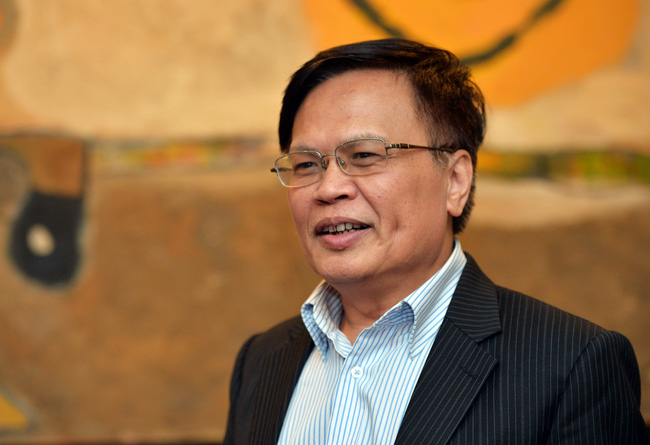Vietnam turns semiconductor vision into action
The global semiconductor industry is being reshaped by geopolitical tensions, shifting supply chains, and the surge of digital technologies.




According to CIEM President Ph.D. Nguyen Dinh Cung, insufficient information and manpower is the major difficulty of Vietnamese enterprises in the process of international economic integration, especially in preparation for the implementation of free trade agreements (FTAs).

Economic experts acknowledge that after a decade of joining the World Trade Organization (WTO), Vietnam's international economic integration has properly followed the country's development roadmap.
Along with the WTO, Vietnam is also active in negotiating and signing new - generation FTAs with higher standards and quality.
Therefore, despite the annual average growth rate of only 6.04% during the period 2007-2017 (lower than the level of 7.51% in 2000-2006), the quality and recovery momentum are increasingly stable.
However, foreign firms have apparently made better use of opportunities from the integration process in recent years.
Difficulties of domestic enterprises in the process of international economic integration come from both inside and outside, according to Ph.D Nguyen Dinh Cung.
Non-tariff barriers
In the process of opening market under the integration commitments, several countries tend to frequently carry out and apply trade remedies (including anti-dumping, anti-subsidy, safeguard) on goods imported from Vietnam.
Statistics from the Department of Trade Remedies also show that there have been 23 cases of trade defense during 2016-2017.
Non-tariff measures are diverse and complex. Different markets impose different types of barrier.
"Vietnamese enterprises are very passive in meeting these requirements, whereas, in contrast to tariff reductions, the removal of non-tariff barriers is not simple," Cung said.
In order to address this issue, businesses first need to think positively towards policies and barriers because they are global standards even applied in their own countries. Besides, meeting new standards helps Vietnamese enterprises take advantage of opportunities to access wider markets, especially developed markets such as EU, USA and Japan.
Vietnamese enterprises should actively seek information about new market partners as well as new FTAs through key functional agencies; regularly hold dialogues with Government agencies to highlight the advantages and disadvantages in the process of implementing international economic integration commitments so that the Government and ministries and branches can make timely adjustments to remove difficulties for businesses.
Private standards of the value chain's leaders
Rules and standards posed by multinational companies - the giants of the value chain - are even more difficult to overcome. These barriers do not merely come from outside, but from businesses operating in Vietnam.
Big corporations such as Samsung and Intel impose their own set of standards and regulations. Accordingly, the fact that Vietnamese businesses can not even provide a screw to foregin companies – let alone join the global value chain - is worth pondering.
Thus, in addition to adjusting the supporting industry law, the Government should support and classify enterprises to meet the requirements set by large enterprises.
Vietnamese enterprises need to study and fully understand the standards, criteria and conditions required to join the value chain. It is also necessary for foreign enterprises to provide Vietnamese businesses criteria and conditions.
"In cases where there are unreasonable criteria, conditions or discriminatory conduct on the part of domestic suppliers, the Ministry of Industry and Trade and other competition agencies can intervene to change or abolish them to create a fair competitive environment," said Cung.
Challenges from the enterprises themselves
Head of CIEM said that Vietnamese enterprises normally do not have long-term business strategies, so they often do not pay much attention to the development of human resource, technology, and notably management capability. They also do not plan to mobilize long-term investment and build trust with partners.
"Vietnamese enterprises are not actively preparing for the implementation of FTAs. According to our investigation in the preparation of the Vietnam-EU trade agreement, 63% of enterprises do not actively prepare for the implementation of EVFTA while only less than 1% of them fully prepared to meet the requirements and take advantage of the opportunities provided by the EVFTA," Cung said.
Accordingly, a lack of information and manpower is the major difficulty of Vietnamese enterprises in the process of international economic integration.
Concerning the solutions, Cung suggests the authorities to provide businesses adequate information about FTAs.
Vietnamese businesses also have to take the initiative and further enhance their ability to take advantage of the incentives from trade agreements.
In this process, Vietnamese enterprises, especially small and medium ones, must strengthen their corporate governance, innovate business methods, intensify technological innovation and take initiative in responding to market risks.
Finally, businesses must accompany the Government to deal with new trade barriers, especially non-tariff barriers in the integration process.
Government support will serve no purpose if enterprises themselves are not fully aware of their needs, difficulties and challenges in the context of international economic integration.
The global semiconductor industry is being reshaped by geopolitical tensions, shifting supply chains, and the surge of digital technologies.
The change in APA approval authority is expected to shorten processing time and enhance business proactiveness in international tax negotiations.
As hybrid cloud systems grow more complex, Vietnamese enterprises are struggling to detect cybersecurity threats moving laterally within their own networks.
The submission of the draft resolution on Vietnam’s international financial center to the National Assembly heralds a new developmental era for the country.
More than just running a 5-star resort, Kristian Petersen is redefining the art of hospitality with a humane and sustainable leadership philosophy.
For Tyna Huynh, co-founder of Drinkizz, organic is not just a food choice but a way of life that fosters a deep connection between people, nature and community.